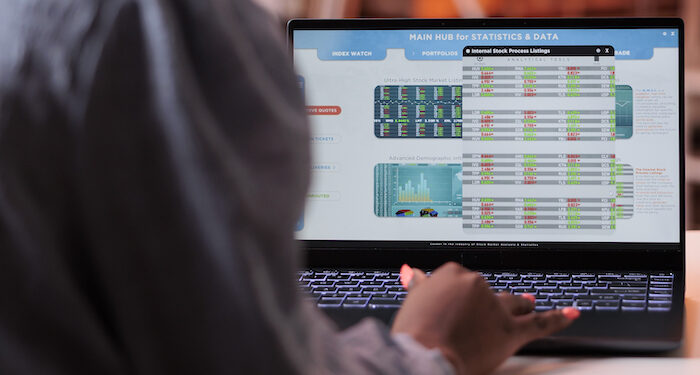In the fast-paced world of digital media, data has emerged as the cornerstone of strategic decision-making. Nowhere is this more evident than in the realm of campaign reporting.
As businesses increasingly shift their marketing budgets to digital platforms, the demand for detailed, accurate, and actionable data reporting has skyrocketed. Campaign reporting has evolved from simple metrics such as impressions and clicks to more sophisticated analyses that integrate multiple data sources and provide insights that drive optimisation.
This article explores key trends shaping the future of digital campaign reporting, focusing on the role of data in unlocking more effective and accountable marketing strategies.
-
The shift toward real-time reporting
In today’s digital landscape, real-time data is no longer a luxury; it’s an expectation. With the rise of programmatic advertising and social media platforms, marketers now have access to data almost instantly. According to a study by Statista, 56% of marketing professionals say real-time reporting has significantly improved their ability to optimise campaigns and adjust strategies quickly, based on performance data.
For instance, tools such as Google Analytics, Facebook Ads Manager and Looker Studio allow advertisers to monitor KPIs like cost per conversion, engagement rate, and customer journey insights in real time.
This enables businesses to pivot and refine campaigns mid-flight rather than waiting for a post-campaign analysis. The immediacy of this data has allowed brands to be more agile, focusing on optimisation at each stage of the funnel and minimising wasted ad spend.
-
The rise of cross-platform campaign reporting
Campaign reporting has evolved beyond siloed platforms. In the past, a brand might run separate campaigns on Google, Facebook, and Instagram, each with its own set of reports. Today, integration is critical. Cross-platform reporting, powered by tools like Looker Studio, offers a unified view of performance across multiple channels.
For instance, a digital media strategist can now track how a campaign performs across search, social, display, and email marketing in one place. This integration helps in understanding the holistic performance of campaigns, providing insights on which channels are delivering the highest return on investment (ROI).
With this level of data, it becomes easier to attribute conversions to specific touchpoints, ensuring a more accurate measurement of a campaign’s effectiveness.
Cross-platform tracking also allows for the integration of offline data, helping bridge the gap between online behaviour and in-store purchases. This has led to an 18% increase in multi-touch attribution reporting by companies in 2023, according to a report by eMarketer. Brands are increasingly using this insight to refine their omnichannel strategies.
-
Data-driven personalisation
Personalisation is becoming central to digital campaign success. Consumers expect personalised interactions, and data plays a pivotal role in delivering these experiences. According to Accenture, 91% of consumers are more likely to shop with brands that recognise them, remember them, and provide relevant offers and recommendations.
Campaign reporting is increasingly focusing on personalised metrics, with marketers analysing data to understand user behaviour on a granular level. Reports now often include metrics like demographic breakdowns, behavioural insights and purchase intent. This allows brands to target their audience with hyper-relevant content that is more likely to convert.
For example, dynamic ads that change based on user behaviour or preferences have proven to deliver up to 20% higher conversion rates compared to generic ads. Campaign reports that measure the success of these personalised ads often look at metrics such as click-through rates (CTR), conversion rates, and cost per acquisition (CPA), providing deeper insights into the effectiveness of personalised strategies.
-
The increasing role of AI in campaign reporting
Artificial Intelligence (AI) and machine learning are rapidly transforming how data is gathered, analysed, and reported in digital marketing campaigns. AI-powered platforms such as Google Ads Smart Bidding and Meta’s AI-driven ad placements help optimise campaigns by automatically adjusting bids and targeting based on real-time performance data.
In fact, according to a report by Salesforce, 84% of marketers are using AI to improve the performance of their digital campaigns, and this number is expected to grow. AI-driven reporting tools not only help in analysing large data sets but also provide predictive analytics, which can forecast future campaign performance based on historical data.
Campaign reports powered by AI can identify trends and suggest optimisations before human analysts even spot them. For example, AI can highlight patterns like underperforming ad creatives or keywords that are no longer driving traffic, allowing marketers to make adjustments quickly and efficiently.
-
Focus on first-party data
As privacy concerns grow and third-party cookies phase out, the reliance on first-party data has surged. This shift is reshaping the way campaign reporting is handled. With limited access to third-party data, brands now need to harness first-party data more effectively to drive insights and performance.
According to a survey by Deloitte, 61% of businesses are increasing their investment in first-party data strategies. Campaign reports are now being tailored to incorporate this shift, focusing on customer data gathered from direct interactions, such as website visits, email engagements, and app usage.
Conclusion
The future of campaign reporting is one that is data-driven, real-time, and integrated across platforms. With the rise of AI and the growing importance of personalisation, businesses need to ensure they are using the latest tools and techniques to leverage their data effectively.
As privacy concerns push brands to focus on first-party data, the sophistication of campaign reporting will continue to grow, enabling more precise targeting, better customer experiences and stronger ROI.
 Nkateko Mongwe is a digital reporting analyst for Lucid Performance agency. He writes professional industry-related opinion pieces and poetry. Mongwe is a data-driven professional with over 12 years of experience in data Insights and analytics within the marketing, media and digital sectors, having worked for companies such as Vodacom, IPG Mediabrands, GroupM and Publicis Media. As a former strategic data lead at Essence Mediacom, insights lead at Universal McCann hr has lectured on media maths and research, also contributing to industry conversations through his column in The Media Online. He co-founded a startup, Digital Fanta, which was recognised by Fast Company as one of the top 50 innovative startups in South Africa. A passionate sports fan, Nkateko supports Manchester City, Orlando Pirates, and enjoys cricket. He’s also a tech buff, PlayStation enthusiast, and draws inspiration from figures like Robert Diggs, Corey Woods, Nasir Jones, Ray Dalio and Matthew McConaughey.
Nkateko Mongwe is a digital reporting analyst for Lucid Performance agency. He writes professional industry-related opinion pieces and poetry. Mongwe is a data-driven professional with over 12 years of experience in data Insights and analytics within the marketing, media and digital sectors, having worked for companies such as Vodacom, IPG Mediabrands, GroupM and Publicis Media. As a former strategic data lead at Essence Mediacom, insights lead at Universal McCann hr has lectured on media maths and research, also contributing to industry conversations through his column in The Media Online. He co-founded a startup, Digital Fanta, which was recognised by Fast Company as one of the top 50 innovative startups in South Africa. A passionate sports fan, Nkateko supports Manchester City, Orlando Pirates, and enjoys cricket. He’s also a tech buff, PlayStation enthusiast, and draws inspiration from figures like Robert Diggs, Corey Woods, Nasir Jones, Ray Dalio and Matthew McConaughey.














